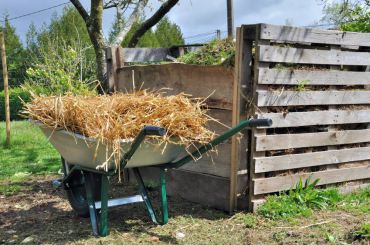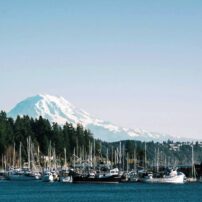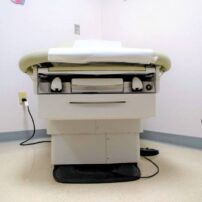 If you are like me, this time of year brings a bit of (late) spring cleaning, coupled with hours of work getting your yard and garden back into shape. Unfortunately, the price we pay to live in such a lush and beautiful place is the annual cleanup of yard debris from our abundance of trees.
If you are like me, this time of year brings a bit of (late) spring cleaning, coupled with hours of work getting your yard and garden back into shape. Unfortunately, the price we pay to live in such a lush and beautiful place is the annual cleanup of yard debris from our abundance of trees.
About this time of year, we start to find ourselves with accumulations of this material, but the question you may be asking is, “What do I do with all of this stuff?”
I’m here to tell you that there are some fairly simple options available in the world of composting.
Getting Started
Backyard composting can be a fun, educational, and rewarding experience for the homeowner. There are tons of resources to get you started, and you can go as crazy as you want in scale — depending on your motivation level and volume of yard debris to be managed.
Building a compost bin can be as easy as finding a wooden stake and a few linear feet of chicken wire. Or look for commercially available prefabricated compost bins and tumblers at local retailers; these can be assembled quickly and be ready to use the same day.
The Process
Composting is simply letting material “rot” in a controlled environment. With the right combination of carbon (browns), nitrogen (greens), water and oxygen, microbes will munch away at your yard debris until it is a nutrient-rich soil amendment.
As the microbes eat away at the material, they generate a tremendous amount of heat, which is a good indicator of how your compost is progressing. Turning the compost keeps it aerobic (with oxygen), which is critical, since anaerobic (without oxygen) decomposition is the cause of the foul odor we all associate with rotting waste.
The material in your compost bin should also be kept damp — NOT WET — about the moisture content of a wrung out sponge. This is where tumblers are handy for the casual composter, since they do a fairly good job of keeping in the moisture and turning is a breeze.
Tools of the Trade: Pros and Cons of Different Backyard Composters
Conventional wood/composite lumber 3-bin composter:
- Pros: Handles large volumes well, most volume per initial investment dollar, can be built to custom dimensions, continuous throughput of material, very durable
- Cons: Some basic construction skills required to build, not portable, requires regular turning and monitoring of temperature and moisture
Stake and wire composter:
- Pros: Very inexpensive, portable/temporary, turning not required
- Cons: Small volumes only, sometimes difficult to get to temperature, slower throughput, unsightly
Commercially available compost bin:
- Pros: Can be transported home in the trunk of your car, assembles easily, portable (when empty), black color helps with achieving temperatures, holds moisture well, can yield quick throughput if properly managed and monitored
- Cons: Moderate volumes only (larger yards need multiple bins), requires turning, some models have been known to have durability issues
Commercially available compost tumbler:
- Pros: All of the benefits of the commercially available bin above, easy to turn
- Cons: Often have low capacities, moving parts that may fail over time
Don’t Have the Time?
For some folks, it is simply more convenient to let a commercial composter do the work for them. We are fortunate enough to have two local composting facilities that process organic waste — North Mason Fiber (Highway 3 at Mason-Kitsap Border) and Olympic Organics (Kingston).
Both of these sites (and others throughout the county) accept clean yard waste from the public. Additionally, if you live within Waste Management’s or Bainbridge Disposal’s yard waste curbside collection boundaries, you can have your yard waste and food scraps picked up from the curb every other week for a few bucks a month.
Go Forth… Compost!
Kitsap County’s Solid Waste Division has resources available to help residents get going on the road to composting.
We have a very educational booklet, “Home Composting Made Easy,” which is available at no charge — just email me or give me a call at 360-337-4898 to get one. Additionally, there are a few demonstration compost sites set up around the county, including at Anna Smith Park (Tracyton Beach Rd.), the Bainbridge Library and Battle Point Park (Bainbridge).
Interested in vermicomposting (worm bins)? I will hit on this on a later blog post.


























